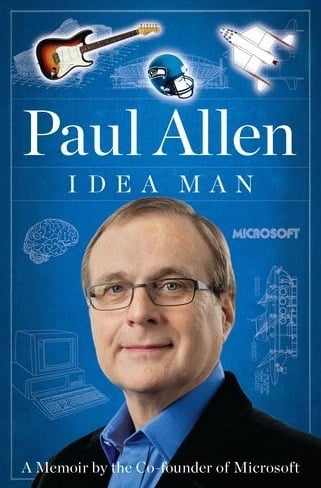Find Our Latest Video Reviews on YouTube!
If you want to stay on top of all of our video reviews of the latest tech, be sure to check out and subscribe to the Gear Live YouTube channel, hosted by Andru Edwards! It’s free!
Thursday March 31, 2011 1:48 pm
Paul Allen portrays Bill Gates as a brilliant backstabber
 In an excerpt from an upcoming book released Wednesday, Microsoft co-founder Paul Allen paints co-founder Bill Gates as a technical genius, but as a ruthless executive who tried to dilute Allen's financial stake in the early days of Microsoft.
In an excerpt from an upcoming book released Wednesday, Microsoft co-founder Paul Allen paints co-founder Bill Gates as a technical genius, but as a ruthless executive who tried to dilute Allen's financial stake in the early days of Microsoft.
In the excerpt from Idea Man, Allen's upcoming book, Gates is characterized as an intensely focused mathematical genius, with a penchant for social quirks. Allen describes himself as the glue that held Microsoft together.
Idea Man is scheduled to be published this month by Portfolio, a member of the Penguin Group. The excerpt was published by Vanity Fair.
The crux of the story seems to lie in the last anecdote Allen relates: a scene in which Gates and Steve Ballmer, brought in to run the company, apparently scheme to dilute Allen's stake in the company. Allen describes Ballmer as looking like "an operative for the N.K.V.D." Allen, then suffering from Hodgkin's lymphoma, recounts the scene:
"One evening in late December 1982, I heard Bill and Steve speaking heatedly in Bill's office and paused outside to listen in," Allen wrote. "It was easy to get the gist of the conversation. They were bemoaning my recent lack of production and discussing how they might dilute my Microsoft equity by issuing options to themselves and other shareholders. It was clear that they'd been thinking about this for some time.
"Unable to stand it any longer, I burst in on them and shouted, "This is unbelievable! It shows your true character, once and for all." I was speaking to both of them, but staring straight at Bill. Caught red-handed, they were struck dumb. Before they could respond, I turned on my heel and left."
Gates did not comment on the excerpt via his Twitter account or his blog.
Allen described Gates as a "brillant," but illustrated his social awkwardness with an account of dinner with Allen, his girlfriend Rita, and him.
"Rita had roasted a chicken one night for dinner and couldn't take her eyes off him," Allen wrote. "'Did you see that?' she said after he'd left. 'He ate his chicken with a spoon. I have never in my life seen anyone eat chicken with a spoon.' When Bill was thinking hard about something, he paid no heed to social convention. Once, he offered Rita fashion advice—basically, to buy all your clothes in the same style and colors and save time by not having to match them. For Bill, that meant any sweater that went with tan slacks."
Allen also claimed that he and Gates originally agreed to a 50-50 split of the company's equity. But then Gates later argued for a 60-40 division, which Allen agreed to. After Microsoft had established itself as the creator and vendor of a version of the BASIC operating system for the Altair 8800, Gates then asked for 64-36.
"Again, I had that moment of surprise," Allen wrote. "But I'm a stubbornly logical person, and I tried to consider Bill's argument objectively. His intellectual horsepower had been critical to BASIC, and he would be central to our success moving forward—that much was obvious. But how to calculate the value of my Big Idea—the mating of a high-level language with a microprocessor—or my persistence in bringing Bill to see it? What were my development tools worth to the "property" of the partnership? Or my stewardship of our product line, or my day-to-day brainstorming with our programmers? I might have haggled and offered Bill two points instead of four, but my heart wasn't in it. So I agreed. At least now we can put this to bed, I thought."
In Feb. 1977, however, the formal partnership agreement that Gates and Allen signed contained a clause that would force Allen out if "irreconcilable differences" divided the two. While the clause was nullified when Microsoft incorporated in 1981, Allen said Gates still tried to force him out for $5 per share.
"As it turned out, Bill's conservatism worked to my advantage, Allen wrote. "If he'd been willing to offer something close to my asking price, I would have sold way too soon."











